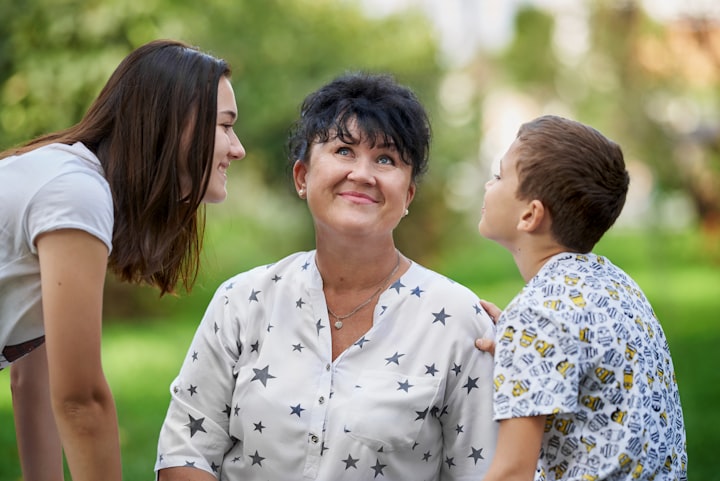Cognizant nurturing is strongly prescribed which empowers one to be more mindful as a parent and furthermore be aware of what is going on
Cognizant nurturing is energetically prescribed which empowers one to be more mindful as a parent and furthermore be aware of what is the situation.
As per a review, a caring connection among guardians and their kids from the get-go in life significantly improves the youngster's propensity to be 'supportive of social,' and act with consideration and sympathy towards others.
The College of Cambridge concentrate on utilized information from in excess of 10,000 individuals brought into the world somewhere in the range of 2000 and 2002 to figure out the drawn out exchange between our initial associations with our folks, supportive of sociality and emotional well-being. It is quite possibly the earliest review to take a gander at how these qualities connect over a significant stretch crossing youth and puberty.
The specialists found that individuals who experienced warm and cherishing associations with their folks at age three not just would in general have less psychological well-being issues during youth and pre-adulthood, yet additionally showed uplifted 'prosocial' propensities. This alludes to socially-advantageous ways of behaving planned to help others, like thoughtfulness, sympathy, support, liberality and chipping in.
Albeit the connection between parent-youngster connections and later supportive of sociality should be confirmed through additional exploration, the review focuses to a sizeable affiliation. By and large, it found that for each standard unit above 'typical' levels that a kid's closeness with their folks was higher at age three, their supportive of sociality expanded by 0.24 of a standard unit by immaturity.
Then again, youngsters whose early parental connections were genuinely stressed or oppressive were more averse to create prosocial propensities after some time. The analysts propose this reinforces the case for creating designated strategies and backing for youthful families inside which laying out close parent-kid connections may not generally be direct; for instance, assuming that guardians are battling with monetary and work pressures and don't have a lot of time.
The concentrate additionally investigated how far psychological well-being and prosocial conduct are fixed 'qualities' in youngsters, and how far they vacillate as per conditions like changes at school or in private connections. It estimated both psychological wellness and favorable to sociality at ages five, seven, 11, 14 and 17 to foster an exhaustive image of the elements molding these qualities and how they cooperate.
The examination was attempted by Ioannis Katsantonis and Dr Ros McLellan, both from the Staff of Training, College of Cambridge.
Katsantonis, the lead creator and a doctoral scientist gaining practical experience in brain science and schooling, said: "Our examination showed that after a specific age, we will generally be intellectually well, or intellectually unwell, and have a sensibly fixed degree of versatility. Supportive of sociality fluctuates more and for longer, contingent upon our current circumstance. A major impact has all the earmarks of being our initial relationship with our folks. As youngsters, we incorporate those parts of our associations with guardians that are portrayed by feeling, care and warmth. This influences our future demeanor to be caring and accommodating towards others."
The review involved information from 10,700 members in the Thousand Years Companion Study, which has observed the improvement of a huge gathering brought into the world in the UK somewhere in the range of 2000 and 2002. It incorporates study based data about their favorable to sociality, 'incorporating' emotional well-being side effects (like gloom and nervousness) and 'externalizing' side effects (like animosity).
Further review information gave data about how far the members' associations with their folks at age three were portrayed by 'abuse' (physical and boisterous attack); profound clash; and 'closeness' (warmth, security and care). Other possibly jumbling factors, similar to ethnic foundation and financial status, were additionally considered.
The Cambridge group then utilized a complicated type of factual investigation called inactive state-characteristic event demonstrating to grasp how far the members' emotional wellness side effects and prosocial tendencies appeared to be communicating fixed character 'qualities' at each phase of their turn of events. This empowered them, for instance, to decide how far a youngster who acted tensely when reviewed was answering a specific encounter or situation, and how far they were only a normally restless kid.
The review discovered a few proof of a connection between psychological wellness issues and favorable to sociality. Eminently, youngsters who showed higher than normal externalizing emotional wellness side effects at a more youthful age showed less supportive of sociality than expected later. For instance, for every standard unit increment above ordinary that a youngster shown externalizing psychological well-being issues at age seven, their favorable to sociality ordinarily fell by 0.11 of a unit at age 11.
The fact that the converse applied, but makes there no obvious proof. While youngsters with more prominent than normal favorable to sociality for the most part would do well to emotional wellness at any single given moment, this didn't mean their emotional well-being improved as they aged. Based on this finding, the review recommends that schools' endeavors to cultivate prosocial ways of behaving might be more significant in the event that they are coordinated into the educational plan in a supported manner, as opposed to being carried out as oddball mediations, similar to hostile to harassing weeks.
As well as being all the more favorable to social, kids who had nearer associations with their folks at age three likewise would in general have less side effects of poor emotional wellness in later youth and pre-adulthood.
Katsantonis said that the discoveries underlined the significance of developing solid early connections among guardians and kids, which is now broadly considered to be basic to supporting youngsters' sound advancement in different regions.
"Such a large amount this returns to guardians," Katsantonis said. "The amount they can invest energy with their kids and answer their necessities and feelings from the get-go in life matters colossally."
"Some could require help figuring out how to do that, yet we shouldn't misjudge the significance of just giving them time. Closeness just creates with time, and for guardians who are living or working in unpleasant and compelled conditions, there frequently isn't sufficient. Approaches which address that, at any level, will have many advantages, including upgrading kids' psychological flexibility and their ability to act decidedly towards others further down the road."







Comments
There are no comments for this story
Be the first to respond and start the conversation.